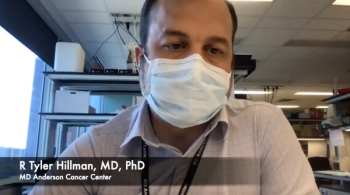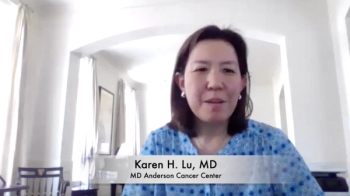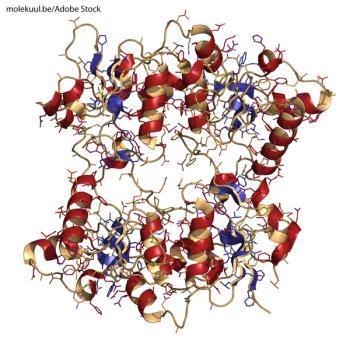
Simple hysterectomy may become the new standard of care for patients with low-risk, early-stage cervical cancer, according to an expert from Université Laval in Quebec City, Canada.

Your AI-Trained Oncology Knowledge Connection!


Simple hysterectomy may become the new standard of care for patients with low-risk, early-stage cervical cancer, according to an expert from Université Laval in Quebec City, Canada.

Pembrolizumab plus chemotherapy with or without bevacizumab yields a survival benefit in PD-L1 positive patients with cervical cancer in the phase 3 KEYNOTE-826 trial.

The GARNET trial expansion cohorts showed durable antitumor activity across multiple populations of patients treated with dostarlimab in advanced endometrial cancer.

Patients enrolled on the phase 3 ENGOT-EN5/GOG-3055/SIENDO study with advanced or recurrent endometrial cancer appeared to benefit from treatment with selinexor compared with placebo.

Progression-free survival and overall survival were enhanced with the use of bevacizumab plus first-line chemotherapy in ovarian clear cell carcinoma.

A neoadjuvant and postsurgical treatment regimen involving ruxolitinib and chemotherapy appeared to boost progression-free survival in patients with stage III and IV ovarian cancer.

Results from the phase 3 KEYNOTE-826 trial show a significant survival benefit with pembrolizumab plus chemotherapy with or without bevacizumab in most patient subgroups with persistent, recurrent, or metastatic cervical cancer.

The ATHENA-MONO trial showed a significant improvement in progression-free survival when patients with platinum-sensitive ovarian cancer were treated with maintenance rucaparib vs placebo in the first-line setting, regardless of HRD status.

Data on next line of therapy from the phase 3 Study 309/KEYNOTE-775 trial emphasized the benefit of lenvatinib plus pembrolizumab for advanced endometrial cancer.

Kathleen Moore, MD, discusses findings compiled from 3 clinical trials of niraparib in patients with ovarian cancer.

An expert emphasizes how a big team is needed to properly employ the different therapeutic modalities needed to treat patients with ovarian granulosa cell tumors.

Clinical activity of the combination of pertuzumab and trastuzumab in seen in patients with ERBB2/ERBB3 overexpressing uterine cancers.

Doubling treatment duration of bevacizumab did not lead to better survival in patients with ovarian cancer who were treated on a phase 3 trial.

Results reported at the 2021 ASCO Annual Meeting show that half of patients treated in the FORWARD II trial achieved a response to therapy with mirvetuximab soravtansine and bevacizumab.

Patients with platinum-sensitive recurrent ovarian cancer treated with niraparib had an acceptable safety profile regardless of the dose being adjusted for weight.

CancerNetwork® sat down with Shannon N. Westin, MD, MPH, at the 2021 ASCO Annual Meeting to talk about the use of adavosertib in PARP inhibitor–resistant ovarian cancer.

Data presented at the 2021 ASCO Annual Meeting on 3 prominent trials of niraparib as maintenance for ovarian cancer after a positive response to platinum-based chemotherapy further support the use of the agent in multiple settings.

Awaited outcomes of the phase 3 OUTBACK trial presented at the 2021 ASCO Annual Meeting do not indicate benefit of adjuvant chemotherapy for patients with cervical cancer.

The US Oncology expert reported that secondary surgical cytoreduction may not lead to improved outcomes in women platinum-sensitive, recurrent ovarian cancer.

The MSK expert discussed how pre- and post-genetic testing online education made patients more knowledgeable about genetic testing.

The MD Anderson Cancer Center expert discussed further research in delivering online accessible genetic testing.

The expert discussed study methods from the NRG Oncology/Gynecologic Oncology Group (GOG) study presented at the 2020 ASCO Virtual Program.

At the 2020 ASCO Virtual Scientific Program, Karen H. Lu, MD, presented on findings from the MAGENTA trial, designed to test whether pre and/or post-test genetic counseling is needed to optimally deliver online accessible genetic testing.

The expert discussed study methods and results from the MAGENTA trial evaluating pre and/or post-test genetic counseling.

The results of the trial demonstrated that maintenance olaparib provided an unprecedented improvement in median OS versus placebo in patients with platinum-sensitive, relapsed ovarian cancer and a BRCA mutation.

The study results indicated that pembrolizumab monotherapy was associated with modest antitumor activity in patients with recurrent advanced ovarian cancer.

The Dana-Farber Cancer Institute expert discussed pembrolizumab monotherapy in patients with advanced recurrent ovarian cancer.

Final overall survival results from the trial showed that maintenance olaparib provided an unprecedented improvement in median overall survival versus placebo in patients with platinum-sensitive, relapsed ovarian cancer and a BRCA mutation.

The MSK expert discussed the need for targeted testing for the Ashkenazi Jewish BRCA mutations in the US healthcare system.

A phase III study using cediranib and olaparib to treat recurrent platinum-sensitive ovarian cancer did not meet its primary endpoint of progression-free survival but did produce comparable activity to standard of care platinum-based chemotherapy treatment.